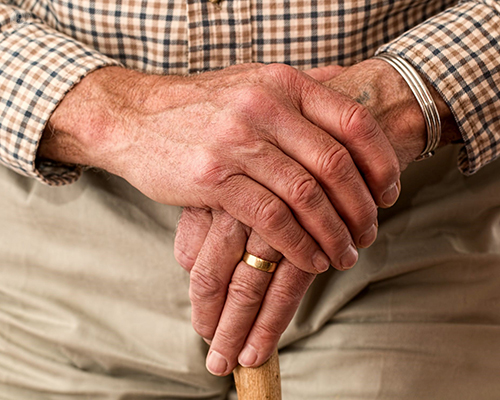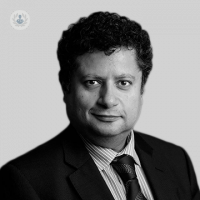Living with Parkinson's disease
Written by:Parkinson’s disease (PD) is a progressive neurological condition caused by a lack of dopamine in the substantia nigra (this is in the mid-brain and is responsible for producing dopamine). Dopamine helps the body to function properly and is responsible for the most important bodily functions such as eating, walking and talking. It’s responsible for movement.
A lack of dopamine causes tremors, motor problems and difficulty carrying out basic tasks. Professor Keyoumars Ashkan tells us more about Parkinson’s disease and the different stages involved.
Parkinson’s affects more than 4.5 million people worldwide. It’s the most common neurodegenerative condition, after Alzheimer’s, and mostly affects people over the age of 60.

What causes Parkinson’s?
We don’t yet know the exact cause of the disease but there is ongoing research and it may be linked to genetics. Other things associated with Parkinson’s are toxins, chemicals used in agriculture and pesticides.
What are the signs that a person has Parkinson’s?
- Hand tremors and tremors in other parts of the body
- Body stiffness that sometimes causes chest pain
- Depression and anxiety
- Shuffling their feet when walking
- Slurred speech
- Constipation
However, there are different stages of PD, outlined briefly below:
Stage one
A person’s daily activities are mostly unaffected during the initial stages of PD. Sometimes loved ones might notice symptoms before the person does themselves. Symptoms at this stage might be slight hand tremors that medication can help to control.
Stage two
Progression to step two can take months and even years. Tremors will become more severe, facial expressions will begin to look different and it may become more difficult to speak. Performing daily tasks becomes a lot more difficult.
Stage three
By this stage symptoms become quite severe. Balance and co-ordination are affected and patients often trip and fall quite easily. At this stage, patients need someone to care for them.
Stage four
Most people at this stage need full time care as their mobility is very restricted. Even tasks like walking can be very challenging.
Stage five
Patients are in a wheelchair and require full time assistance. They may also suffer from dementia, delusions and hallucinations.
How is Parkinson’s disease treated?
Treatment depends on the stage of the disease and also varies between people. There are many different treatments for the disease but unfortunately a cure has not yet been found. Some of the treatments used to help manage the symptoms are:
Physiotherapy
A qualified physiotherapist can help patients with posture and stamina and help keep them moving.
Occupational therapy
This can help patients get their independence back and help them with everyday tasks like walking, eating, drinking and building a routine.
Medication
This is the most popular form of treatment and there is medication available to increase dopamine levels in the brain to reduce the severity of symptoms.
Surgery
Deep brain stimulation involves inserting thin wires into the area of the brain that controls movement to help control motor symptoms, this can be life changing for patients.
As already mentioned, there is currently no cure for Parkinson’s but with the right specialist and treatment, symptoms can be better managed and controlled.
If you or a loved one wants more information regarding PD, contact Professor Keyoumars Ashkan.


